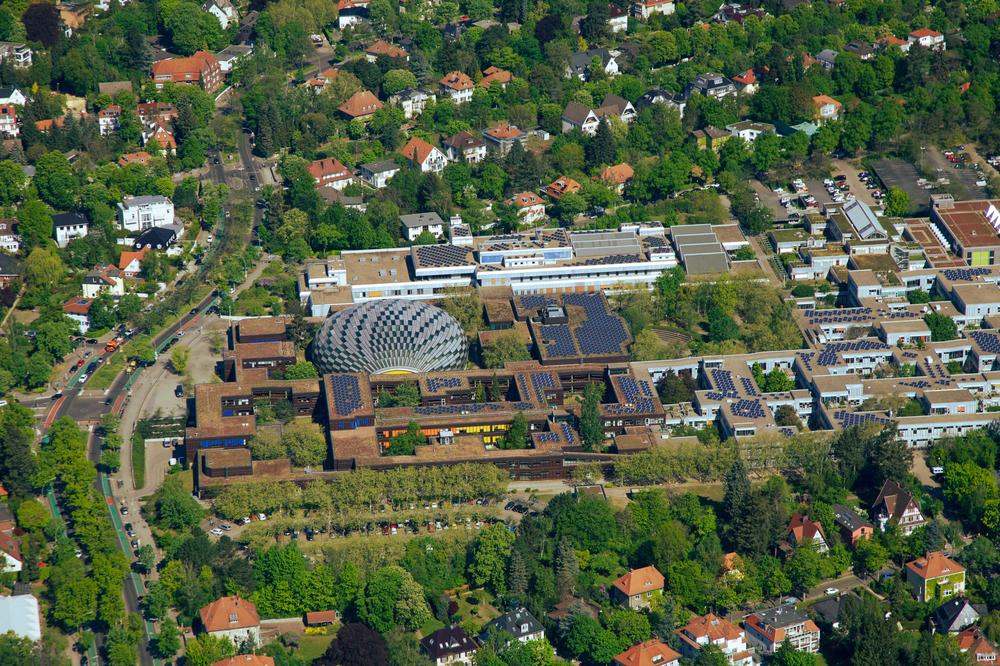A Refuge for Researchers
Academic freedom is under threat in many countries around the world, forcing researchers to flee their homes. Freie Universität is able to provide some with protection and support
Oct 05, 2022
Freie Universität has opened its doors to twenty-seven scholars as part of a program by Academy in Exile. The program provides funding and support to scholars from around the world who are forced to flee their countries due to war or persecution.
Image Credit: Dirk Laubner
Dr. Mohamed Shareef Asees was forced to flee Sri Lanka after it became too dangerous for him to stay there. The Asia-Pacific country has been plagued by political unrest for several years now. Dr. Asees has now found refuge in Berlin. “I would like to find a permanent position – in or outside academia – and settle down in Germany with my family,” says the displaced political scientist and peace researcher. Dr. Asees will soon be holding his first seminar at Freie Universität Berlin and submitting a research proposal.
Sadly, his situation is not unique – there are many researchers currently residing in Germany who were forced to flee their home countries. Starting over in a foreign country is not easy, which is why universities and research institutions offer help to displaced researchers. Freie Universität Berlin has played an active role in providing this support for many years now and is involved in funding programs, for example, Academy in Exile – a joint initiative between four academic institutions, led by the University of Duisburg-Essen. Since being founded five years ago, Academy in Exile grants fellowships to postdoctoral researchers who advocated for human rights, peace, and democracy in their home countries. Recipients of the fellowships are able to research and teach at the program’s partner institutions for up to two years. This is an important first step for many researchers, allowing them to gain a foothold in the world of German academia.
Researchers Forced to Flee from War and Persecution
Freie Universität has already opened its doors to twenty-seven fellows as part of an Academy in Exile program funded by the Mellon Foundation and the Open Society Foundations. These researchers have fled from war or persecution from authoritarian regimes around the world, coming to Germany from places such as Ukraine, Turkey, Afghanistan, Hong Kong, and more. “Critical thinking and creative research is almost impossible in these countries,” says Achim Rohde, academic coordinator for Academy in Exile at Freie Universität Berlin. “That’s why it’s so important to ensure that researchers from these countries can find a safe haven here in Germany.”
Another project has the same objective: Academics in Solidarity, or AiS for short. Based at Freie Universität, the project aims at supporting displaced and at-risk scholars through a (trans)national network and peer mentoring program. “Those who wish to continue working in academia need to make contacts, understand how the highly competitive world of German academia works, and deal with an exceptional amount of administrative paperwork – these are all aspects that we can assist people with,” explains Christina Rogers, director of AiS.
More Funding Required
“We also help researchers to develop research partnerships and submit proposals, and provide small amounts of funding.” In addition, the project promotes participation in conferences, training events, and publications. While the Academics in Solidarity program is a great success, its future remains uncertain. AiS currently receives most of its funding from the German Federal Ministry of Education and Research (BMBF). Following a series of cuts made on the federal level this year in Germany, additional funding will need to be found to ensure that the project can continue. AiS urgently needs new sources of funding.
Both programs – Academy in Exile and Academics in Solidarity – enable researchers to resume their scholarly, scientific work more quickly after arriving in Germany. Alternately, the programs can also assist them in taking up a new career path outside academia. Both German academia and the German economy stand to benefit significantly from this. In turn, the support these programs provide for exiled researchers is invaluable.
“Researchers who have fled to Germany, like myself, are faced with massive challenges when it comes to finding work and developing networks,” says Dr. Asees, “Academics in Solidarity has helped me a great deal.”
This article originally appeared in German on September 27, 2022, in the Tagesspiegel newspaper supplement published by Freie Universität Berlin.
Further Information
- Interview with Florian Kohstall, director of the Welcome Initiative and founder of AiS, about the first network conference of the Academics in Solidarity project (originally published on November 18, 2019, in German).

